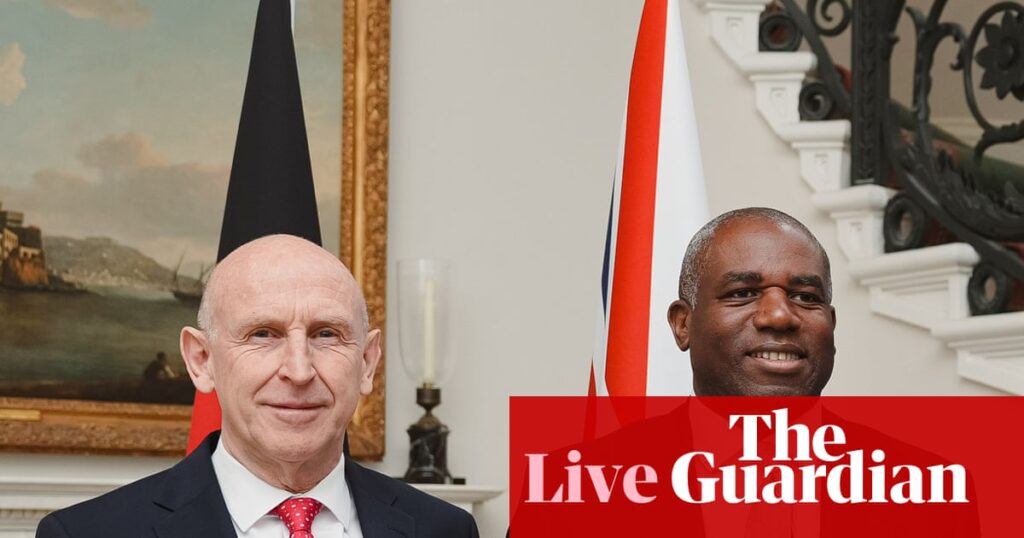Key events
Dfat providing consular assistance to family of man who died in Thailand
The Department of Foreign Affairs and Trade (Dfat) is providing assistance to the family of a man found dead in a Thai hotel room earlier this week, one day before he was due to fly home to Australia.
The 21-year-old was found by housekeeping staff on the holiday island of Phuket on Wednesday, lying on his bed with his phone on his chest. There were no signs of assault or theft in the room, but police said he was still on a phone call with someone.
There were no drugs or alcohol at the scene aside from over-the-counter painkillers as the man had been in a motorcycle accident and injured his elbow the day before his death. A Dfat spokesperson said:
The Department of Foreign Affairs and Trade is providing consular assistance to the family of an Australian who died in Thailand. Owing to our privacy obligations we are unable to provide further comment.
Read more here:
Luca Ittimani
Calls come as government prepares for economic roundtable
Calls for tax changes have mounted ahead of the Albanese government’s economic reform roundtable, now less than a month away. The government’s Productivity Commission is also considering options for corporate tax reform as part of a broader inquiry to report later this year.
The proposed levy would raise between $2.14bn and $12.84bn annually, depending on the size of the levy and discounts, the AAS estimated. That revenue could then be invested via a new branch of the government’s Future Fund, the returns of which could be invested in research.
The academy has suggested two options for the levy – 0.25% of company revenue, or 0.5%. It hasn’t prescribed a spending threshold at which firms should be allowed to start claiming the discount, instead indicating firms that already spend enough on R&D to claim an existing tax offset should be eligible.

Luca Ittimani
Scientists call for research-boosting tax hike
Businesses making more than $100m in annual revenue should face a tax hike unless they put aside money for research and development, the Australian Academy of Science has said.
The academy has proposed a new levy on business revenue that would be halved or removed if they spend enough on R&D, in a bid to boost research.
Firms with significant R&D expenditure, such as tech giant Atlassian and medical company CSL, would avoid part or all of the levy, according to the Academy’s analysis of ATO data. Firms that spend next to nothing on research, potentially including miner Fortescue and retailer Wesfarmers, could be whacked with the full levy.
Australia’s research spend is proportionally low and declining, at just 1.66% equivalent of its gross domestic product, well below the OECD average of 2.7% of GDP spent on R&D, OECD stats show.
Good morning, Nick Visser here to take over for Martin Farrer. Let’s get into the news.

Patrick Commins
Commission says reforms across a range of areas required to sustainably lift growth
Danielle Wood, the Productivity Commission’s chair, said productivity over the past decade grew at less than a quarter of its 60-year average. She said:
Australia should be a place where children born today can expect to live better and more prosperous lives than the generations who have come before them. Productivity growth is essential to fulfilling that promise.
If we could boost growth from its current level to its historic average, adult Australian full-time workers would be at least $14,000 a year better off by 2035.
No single policy change will guarantee our prosperity – we need to make smart reforms across a range of areas to drive sustainable productivity growth.
In response to the PC’s scene-setting paper, Jim Chalmers said there was “no quick fix” to the productivity challenge.
The best way to strengthen our economy and make it more productive is to work through the issues in a methodical and considered way in collaboration with business, unions and the broader community.
Productivity Commission identifies five key areas to boost economy

Patrick Commins
The Productivity Commission has issued a call to arms ahead of next month’s economic reform roundtable, saying that finding a way to lift national productivity is “essential to fulfilling” the promise that each generation will be better off than the last.
The PC is preparing to release five interim reports from separate inquiries that will present practical reforms to tackle key aspects of the national productivity challenge.
The first on 31 July will look at how to create a “more dynamic and resilient economy”, and include options for tax changes to drive more investment.
That will be followed by reports on the clean energy transition, the digital economy, skills and training, and the care economy.
Top public schools add hundreds of thousands of dollars to house prices, research suggests
Families are paying up to $1.3m more to live in top public school catchments in major cities, Australian Associated Press reports.
Analysis from property platform Cotality shows buyers are willing to pay significantly more to access high-performing schools, even though comparable homes just outside the catchment often deliver better capital gains.
The research compared nine school catchment clusters across Sydney and Melbourne.
“In some of the most in-demand school zones, families are paying hundreds of thousands and in one case more than a million dollars, more for a house compared to similar houses outside the boundary,” Cotality’s head of research, Eliza Owen, said.
The largest price gap was in Sydney’s North Shore, where homes in the combined catchments of Killara high, Willoughby Girls and Lindfield learning village held a median value almost $1.3m more than homes nearby but outside the catchment.
Despite this, houses in the catchment recorded lower long-term growth of 126.0% over the past 15 years, compared to 150.3% in neighbouring markets.
In Melbourne, the premium for homes in the catchments of Princes Hill and University high school reached $357,000, though capital growth was weaker than in surrounding suburbs.
Owen emphasised the premiums in some school catchment zones could also reflect other factors such as proximity to train stations, or the high incomes of those living within the area.
Aukmin meeting to occur today
Penny Wong and Richard Marles will today welcome their British counterparts – the foreign secretary, David Lammy, and defence minister, John Healey – for the latest round of talks between ministers from the two countries.
Known as Australia-United Kingdom ministerial consultations (Aukmin), the talks will take place in Sydney and will focus on diplomatic and defence cooperation to address challenges such as policy in the Indo-Pacific.
On Sunday, Marles and Wong will join their counterparts in Darwin to see this cooperation firsthand, with the deployment of a United Kingdom carrier strike group to Australia as part of Exercise Talisman Sabre 2025.
Marles, the defence minister and deputy prime minister, said:
The United Kingdom is a critical partner for Australia. We continue to work closely together, including through the Aukus partnership, to address shared strategic challenges in an increasingly complex and uncertain world.
We are seeing a very real example of how this works, with the first visit by a United Kingdom carrier strike group to Australia since 1997.
I look forward to discussions in the coming days to advance our enduring relationship.”
Welcome
Good morning and welcome to our live news blog. I’m Martin Farrer with the top overnight stories before Nick Visser takes up the reins.
The Productivity Commission has identified five key areas where action can be taken to improve productivity as it prepares for Jim Chalmers’ much-vaunted summit next month. In the coming days, the PC will release reports on creating a “more dynamic and resilient economy”, and include options for tax changes to drive more investment. The other areas will be the clean energy transition, the digital economy, skills and training, and the care economy. More coming up.
Penny Wong and Richard Marles will be in Sydney this morning to welcome their British counterparts – the foreign secretary, David Lammy, and defence minister, John Healey – for the latest round of talks between ministers from the two countries. The so-called Aukmin talks will focus on defence and diplomatic cooperation. More coming up.
Plus, new data puts some numbers on the postcode premium – how much a sought-after school adds to house prices nearby. But there’s also a surprise: it may be a good investment in the kids, but not so much in the property. More on that soon too.

